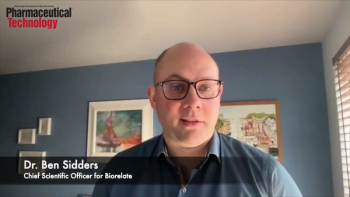
Takeda’s TAKHZYRO (lanadelumab) is now approved in Europe as a subcutaneous injection treatment for hereditary angioedema in patients 12 years old and above and in adults.

Takeda’s TAKHZYRO (lanadelumab) is now approved in Europe as a subcutaneous injection treatment for hereditary angioedema in patients 12 years old and above and in adults.

The partnership will advance the accessibility, scalability, and affordability of RNA-based vaccines.

EMA’s CHMP recommended conditional marketing authorization for linvoseltamab to treat adults with relapsed and refractory multiple myeloma.

FDA has accepted Sanofi’s sBLA for the mAb and granted it priority review status for the targeted treatment of bullous pemphigoid.

The new AI co-scientist is a multi-agent AI system that acts as a virtual scientific collaborator to aid scientific research.

This expanded label allows IZERVAY (avacincaptad pegol intravitreal solution) to be used without a limitation on duration of dosing for treating geographic atrophy.

In this interview, BioPharm International® discusses the trend of AI in pharma and how it may play out in 2025 and beyond with Ben Sidders from Biorelate.

The approval of an ADCETRIS combination regimen is based on positive data from a Phase III trial where the combination regimen demonstrated a clinically meaningful reduction in the risk of death.

BioPharm International® sat down with Adam Sherlock, CEO of Qinecsa, to discuss the changing political landscapes in the US and Europe and how that may affect the bio/pharma industry.

BioPharm International® spoke with Adam Sherlock, CEO of Qinecsa, about the industry trends of 2024, the future technology agenda, and M&A prospects in 2025.

Feb. 11, 2025 marks the 10th anniversary of the International Day of Women and Girls in Science.

On the back of FDA’s designation, March Biosciences is preparing to advance MB-105, a CD5-targeted CAR-T cell therapy, to a Phase II clinical trial in early 2025.

The approval makes Susvimo the first and only continuous delivery treatment for diabetic macular edema.

The committee’s recommendation was based on results from a Phase III trial that demonstrated a 27% reduction in the risk of death versus placebo.

The UK MHRA has granted approval for garadacimab for use in preventing angioedema attacks in patients 12 years old and older who have hereditary angioedema.

FDA has approved an additional indication for LEQEMBI (lecanemab-irmb) as a once-every-four-weeks maintenance therapy for early Alzheimer’s disease.

The 2025 Pharmapack Awards recognize both commercial products and innovations that are shaping the future of pharmaceutical packaging.

Biologic approvals, drug delivery advancements, GLP-1 generics, and the return of funding flow have been identified by Pharmapack as drivers for a record year in 2025.

Vanessa Almendro, Elliot Berger, Benjamin McCloud, and Turna Ray go behind the headlines to discuss their ‘wish list’ for the progression of trends in the bio/pharmaceutical industry.

FDA provides recommendations for those interested in participating in the agency's Advanced Manufacturing Technologies Designation Program.

FDA is reopening the comment period for the Federal Register Notice, “Evaluating the Immunogenicity Risk of Host Cell Proteins in Follow-on Recombinant Peptide Products: Establishment of a Public Docket: Request for Information and Comments”, until March 3, 2025.

The BioPharm International® editors present our most popular technical articles from 2024.

The BioPharm International editors present our most popular video interviews from 2024.

The approval of Hikma Pharmaceuticals’ liraglutide injection marks the first generic version of Victoza, a GLP-1 receptor agonist.

Pointing to the continued circulation and evolution of COVID-19, WHO published a statement on the COVID-19 vaccine antigen composition to respond to variants of the virus.

EMA and HMA have published revised guidelines on identification of commercially confidential information and personal data used in marketing authorization applications.

EMA's committee gave recommendations for marketing authorization of 17 drugs in December, which include therapies for rare heart conditions, anemia, and liver disease.

A new platform allowing market authorization holders to report drug shortages has gone live.

The 340B program is under greater scrutiny with more transparency for drug access being demanded by industry.

GSK’s Biologics License Application for belantamab mafodotin (Blenrep) as part of a combination therapy has been accepted by the US regulatory body for review.